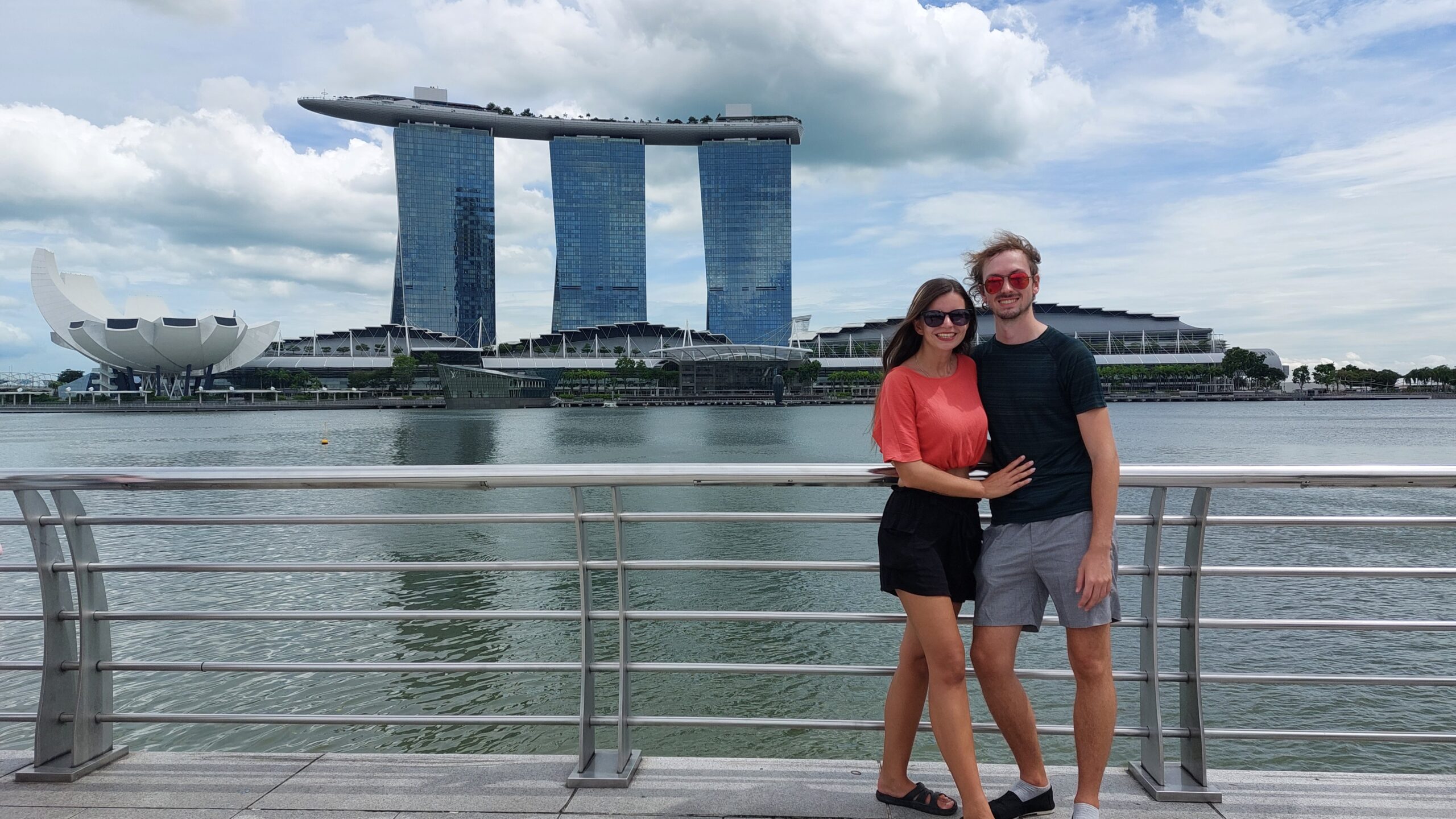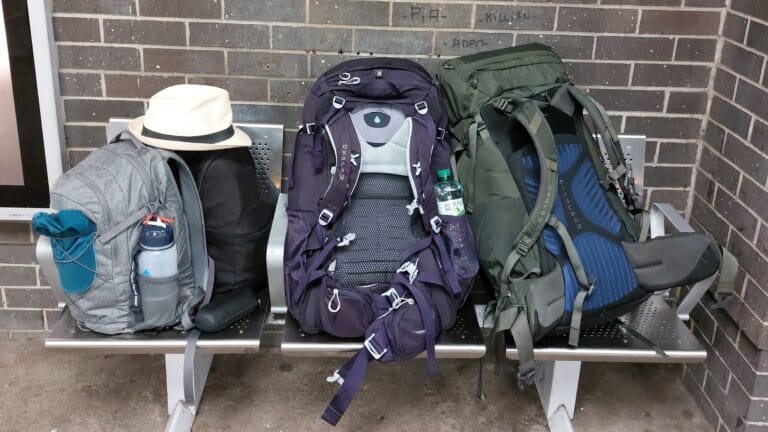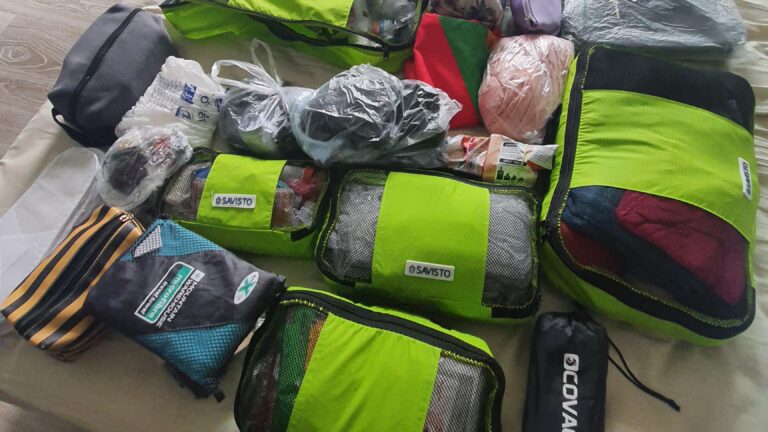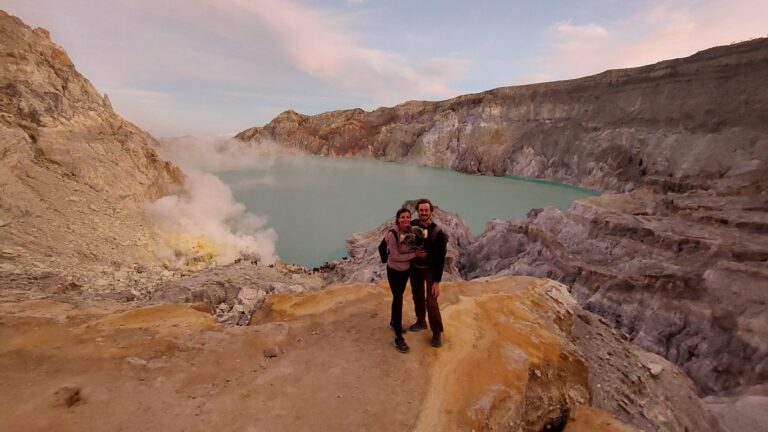So many people are travelling full-time, but how the hell do they afford it??
Maybe you are currently looking at your sad, lonely lettuce in the fridge, a two-digit number in your bank account or your bathtub as the only spa holiday you’ll be able to afford this year.
Which does get you wondering: how can anyone afford to travel full-time?
As people who’ve been there (bathtub instead of a spa) and yet done that (travelled full-time for almost 2 years), we are here to reveal the secret to you.
Beware though: the process does require a sacrifice to be made (but don’t worry, kittens are safe).
Have you noticed this post says Part 1? Well, spotted! We’ve got a whole Full-Time Travel Unpacked series where we spill all the sweaty juicy secrets of life on the road and what it really means to live out of a backpack (or a suitcase, if that’s more your vibe).
This post may contain affiliate links. For more information, please read our Disclaimer.

Here’s a little bit about our journey, if you are new here! If you know us, feel free to skip this part.
After leaving our old life in Scotland in March 2022 (it rains too much there), we travelled full-time for almost 2 years. Sounds fancy, doesn’t it? Well, it was. If you think that carrying overpacked backpacks in 45°C heat around streets that aren’t even on Google Maps is fancy. And that’s just 1% of all the fun we had! 😆
During the 2 years we volunteered in Italy and Bulgaria (free travel while learning new skills, anyone?), explored other amazing European countries and backpacked Southeast Asia. Btw, even our secret wedding was more of an expedition than a wedding. 😅
And, of course, we researched and planned everything ourselves, because you gotta keep the budget low, right? If you are like us, you’ve come to the right place, because we want to share all the useful travel tips and info with you!
Excited? Good. Let’s get into it so you can go on your own epic adventures too!
How do people afford to travel full-time?
The answer to this mystery is two-sided.
You have to think about income. Unless you are an influencer who is able to get PR trips for free. But we would imagine that you wouldn’t be here if that was your case.
The second, even more important thing you have to consider, is the cost.
We’ll talk about both and share all the secrets of how full-time travellers make it work.
The big misconception
We are often asked:
“How can you afford to travel full-time for 2 years, when I can barely afford to take a 2 week holiday??”
Do you know the answer?
If yes, well done, you are a step closer to becoming a full-time traveller.
If not, don’t worry, we’ll tell you.
It’s a big misconception.
Full-time travel for 2 years is absolutely not the same as a 2-week holiday, when it comes to cost.
But let’s start from the beginning.
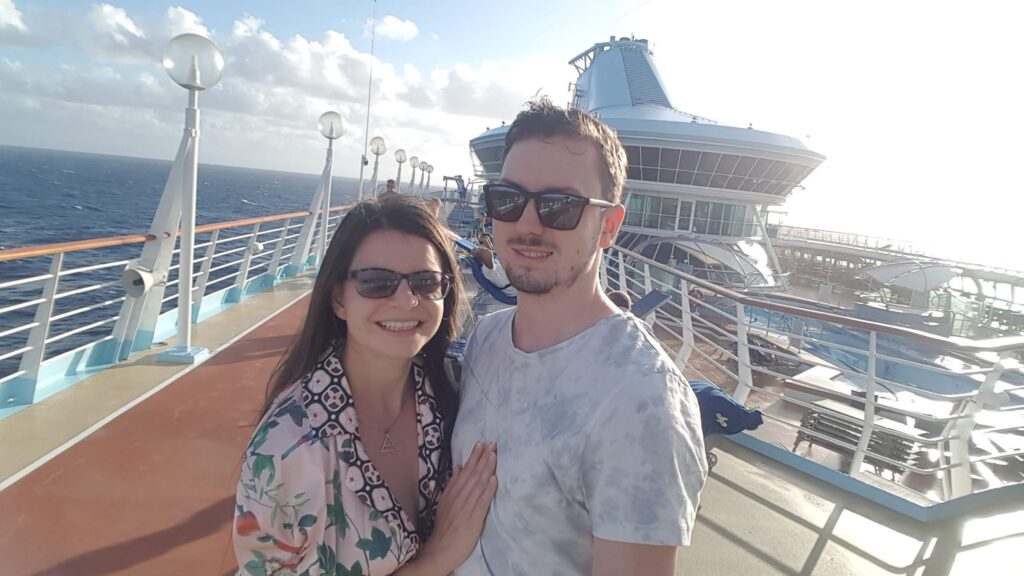
but we could have travelled full-time for MONTHS for the same amount of money
The cost of travelling full-time
At the start of this post we mentioned that the cost of travelling full-time is even more important than the income.
Here is why:
You might have savings or an income, but that’s not enough to travel full-time.
What do we mean?
Well, unless you have millions in savings or are earning a load of money, you won’t be able to stay in 5* all-inclusive hotels in Dubai, New York or London all the time.
Because, even though it may look like it on social media, that’s not what most full-time travellers do.
Do you want to know the secret to long-term travelling?
The secret of travelling full-time
The big secret to how people can afford to travel full-time is very unglamorous: it’s travelling on a low budget.
The lower your budget, the longer you can travel.
It’s simple math, but something many people don’t seem to consider.
2 years travelling cheap countries on a low budget is NOT the same as a 2-week all-inclusive holiday in a resort on a Greek island.
Here are the differences:
1. Prices in the country
Full-time travellers usually focus on countries where their money goes further. This is why many head to Southeast Asia or South America for their full-time travels.
Prices are, of course, relative, depending on your home country, income etc.

2. Cost of travel
To take the low-cost budget one step further, full-time travellers not only choose cheaper countries, but also choose cheaper options of travelling in those countries.
Yes, you can stay in a 5* hotel in Kuala Lumpur for a tiny fraction of what it would cost you in say Paris.
But that’s still more expensive than staying in a 2* hotel there. Or even a cheaper option – in a hostel.
The price of something is often the no. 1 criteria for deciding.
For example: Do we like this nice hotel in Bangkok?
Yes.
Can we find a more basic, but cheaper accommodation there?
Yes.
Sadly, no nice hotel for us. If you want to afford to travel full-time, you can’t justify spending money on things that are unnecessary. If you can find a cheaper alternative, you have to go for it.
Note: Of course, you can choose to go for the more expensive, nicer option. But every time you do that, you are shortening the amount of time you can spend travelling full-time.
Warning
The challenge?
Not falling for the temptation of “but it’s cheaper than at home/in a Western country”.
This is how many full-time travellers run out of their savings faster than they expected.
They see how much cheaper everything is abroad and go wild.
But the cheaper prices are an opportunity to save more, to stretch your savings further. They shouldn’t be a reason to splash out.
This is exactly why we travel the way we do and why other people call it crazy.
Yes, it might be. It’s also 95% of the time not glamorous. And way too often, not very comfortable.
But it’s how we can travel a lot without spending a lot.
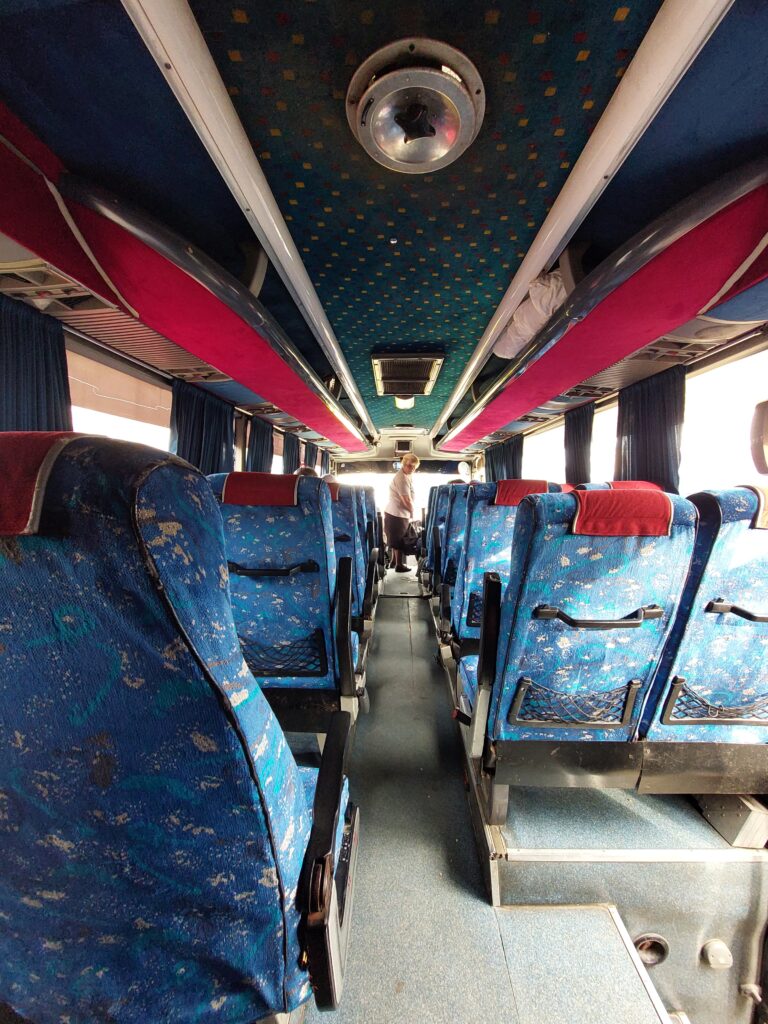
3. Time
The last thing that makes full-time travel different from a 2-week holiday is time.
Here is the general summary:
Holidaymakers: money-rich, but time-poor
Full-time travellers: money-poor, but time-rich
This is, of course, a generalisation, but what it means is that if you go on a short holiday, you want to make most of it and you want it to be epic, most likely.
That means:
- You will travel as fast as possible, by flying.
- You will eat out/get an all-inclusive hotel.
- You will use taxis to get around faster so you see as much as you can.
On the other hand, when you are travelling full-time, time is usually not an issue. You want to travel as long as possible, so you are willing to trade time for money.
This means, for example:
- Instead of flying, you will take a train or a bus (or multiples).
- Instead of eating out, you are willing to spend time cooking in an Airbnb.
- Instead of taxis, you will walk.
These are just some examples of the differences between a holiday and full-time travel, but hopefully, they illustrate how people are able to afford to travel full-time.
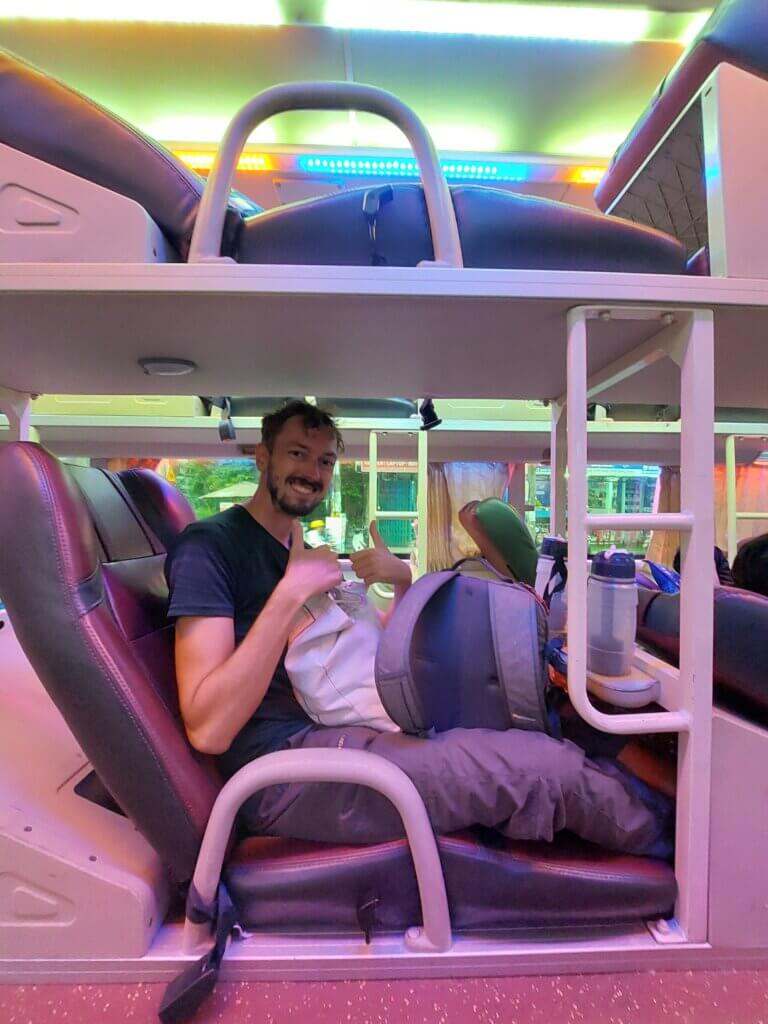
How much money do I need to save to travel full-time?
You are probably wondering how much you need to save to be able to make the full-time travel dream a reality.
Fear not, we’ve got the answer.
We cover this in part 2 of this Full-Time Travel Unpacked series.2
This guide will help you figure out exactly how much you need to be able to say “f*ck you” to the office printer which refuses to print your stuff and go explore the world instead. (Generalising of course. Full-time travel life is not just sunshine and roses. We’ll cover that in the Full-Time Travel Unpacked series too.)
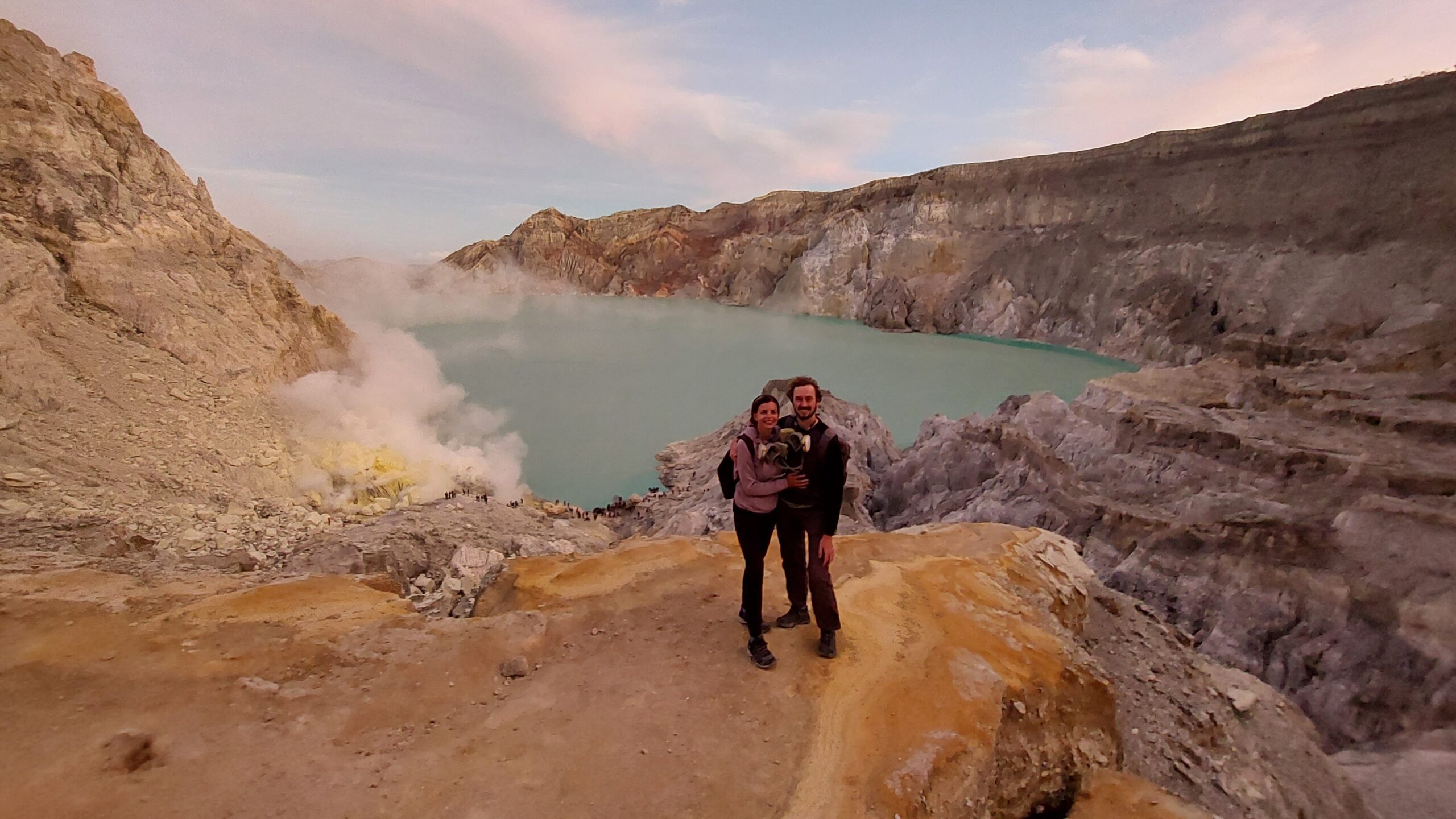
Part 2: How Much Money Should I Save to Travel?
“How much money should I save to travel?” If you’ve asked Google that while side-eyeing your savings, this post is for you. We’re breaking down real numbers and why you don’t need a six-figure trust fund (or selling your organs) to live your full-time travel dream.
Now, let’s look at the second part of this equation: income.
Financing full-time travel
Okay, so far we have established that whatever money you have, you need to try to make last as long as possible by reducing your travel expenses.
But that’s only one part of the mystery of how people can afford to travel full-time.
The second part is, of course, income.
Because you first need money, so you can make it stretch, right?
The different types of income of full-time travellers
To better explain how people are able to afford to travel full-time (without selling a kidney), we are going to tell you about the 3 categories most travellers fall under:
1. The “saved it all” group
These are the people who save for a long time to create a savings pot big enough to be able to travel with it full-time, at least for a certain period of time.
Some things to note here:
- This is the strategy we used – we financed our full-time travellers from our savings.
- It’s a temporary strategy – if you want to keep travelling full-time, you will have to figure out a source of income once your savings run out.
- Many choose to speed up the saving process by selling all of their possessions, including their homes. Again, you need a plan for when you use up all your savings so you don’t end up broke and, in this case, also homeless. For example, maybe you are sure that you will be able to find a well-paid job easily after your full-time travels and are planning to rent a property for a period of time.
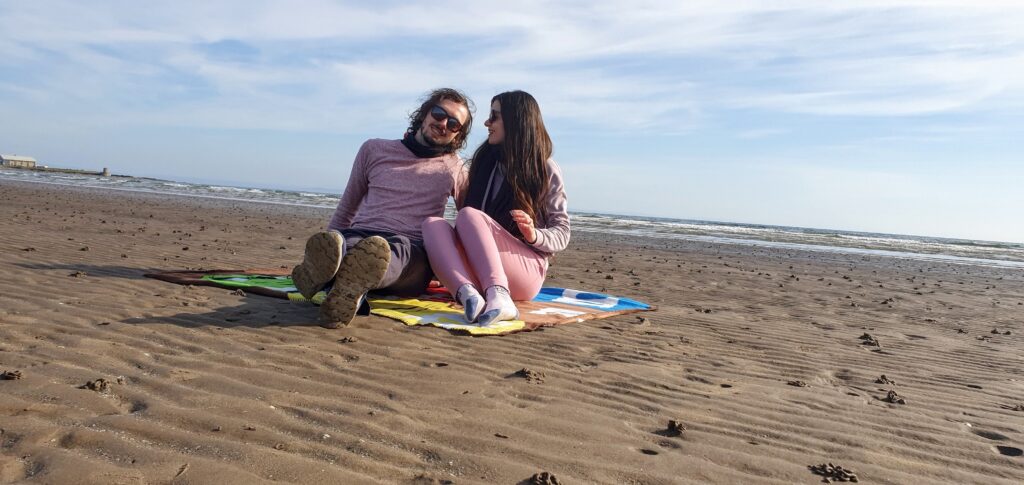
How to save money to afford to travel full-time
We’ve got two resources that will help you here.
First, this post about the 7 simple things we did to save money for our full-time travels.
Second, make sure you actually know how much you need to travel full-time. How else will you know how much you need to save? This post will take you through the process of working out how much you need before you can pack your backpack and go off on your adventures.
Beware this
You might think you’ve got it all worked out.
Enough savings, an emergency pot, and job possibilities to fall back on.
But if you’ve never been jobless and had a finite amount of money, you might not know how it will affect you.
We haven’t talked about this much, but once we quit our jobs and started living (and travelling full-time) on our savings, which were not being replenished, something happened.
Background stress entered our life uninvited, and no matter how much we tried to reason with it, it would not go away.
It’s been scientifically proven over and over again, that your financial situation has an immense effect on your health and well-being.
You’ve got decent money coming in = you are feeling okay.
You don’t have money coming in = you can’t get the thought out of your head, even on a beach in Bali.
Again, you might not experience this, but it’s good to be aware of. We also didn’t expect it and yet the feeling was there the whole time we were living off of our savings.
This is why it’s super important to make sure you have your savings organised in a way that makes you feel safe. We explain it all in this post, so have a read if you want at least some peace of mind when travelling the world full-time on savings.
Note: What we mean here is we did follow our own advice from this post, and yet the background stress happened. We don’t want to imagine how we would have felt if we hadn’t properly sorted out our savings before going travelling! Don’t make that mistake.
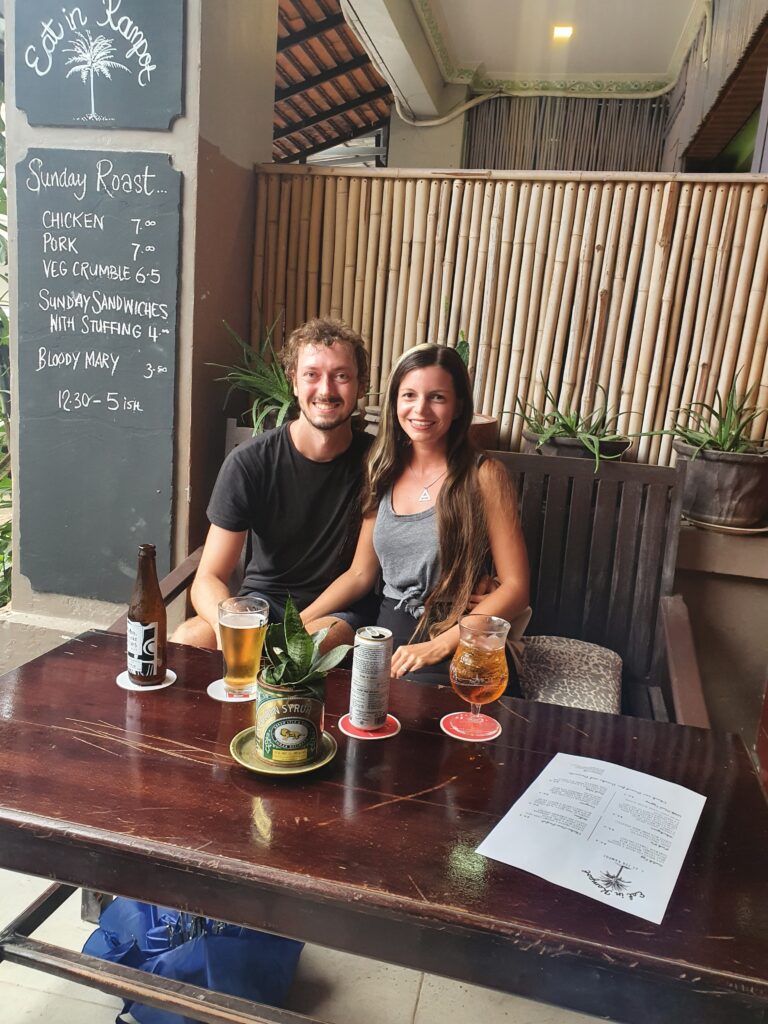
2. The “digital nomad” group
These are your full-time travellers who are making money on the go.
We grouped them all under digital nomads, but it’s not the only option. Many full-time travellers travel for most of the year, but do seasonal jobs for a few months to pay for their travels.
Remote workers could also fall under this category, depending on how much they consider themselves as full-time travelling (it is a lot harder with the constraints of a 9-5 job).
To be honest with you, at the time of writing this post (May 2025), we haven’t yet worked out how to make a full-time income WHILE also travelling full-time and so our expertise here is limited.
But, generally speaking, you either need a substantial amount of money to dip into (savings) or money coming in, to be able to afford to travel full-time.

3. The “hybrid” group
This group is financing their full-time travels on a hybrid model.
For instance, you can save up a significant amount of money, but also rent out your home, so you have some income coming in while you travel.
That way, you can make your money stretch much longer and, most likely, avoid the awful background stress we talked about here.
Bonus idea
This is kinda like a secret category no. 4.
Some people can afford to travel full-time because they end up not paying for it all.
Nah, we are not talking about travel influencers and their sponsored trips again.
We are talking about the travel hack that is volunteering.
Technically, it’s not free travel, because you do have to do some work in exchange for food and accommodation.
But if you choose well, you will get far more in return than you have to put in.
Now, if you are interested in finding out more about volunteering abroad, we’ve got a full guide for you. This is the strategy we used to make our savings stretch further and be able to afford to travel full-time for longer, and in the guide, we explain how you can do it too!
An alternative to volunteering is housesitting/petsitting, but since we don’t have personal experience of it, we won’t go into detail about it here.
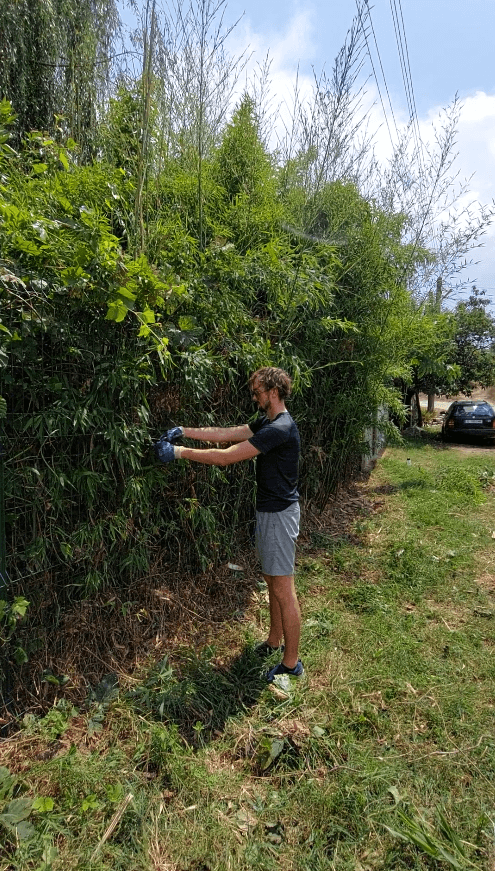
How do people afford to travel full-time? The short answer
The short answer to this often-asked question is:
By having (at least) some money and by spending it well.
That means figuring out your source of travel income and figuring out how to make it last as long as possible.
The actual strategies of achieving this are many, and travellers often mix and match – for example, sell their possessions, volunteer from time to time and travel on a budget.
It’s up to you to find a way that suits you and your situation the most.

If you still have questions about how to afford to travel full-time, drop them in the comments section below or DM us on our Instagram.
And if you need more help figuring out your full-time travels (because yes, planning it is like a full-time job that you never clock out of), you can also book a call with us where we can talk through it all – or just cry together because you still have to pack up your WHOLE HOUSE and yes, that is one of the worst parts about going full-time travelling. And we can’t teleport to help you with it. But, as we said, we can cry (or laugh) about it together.
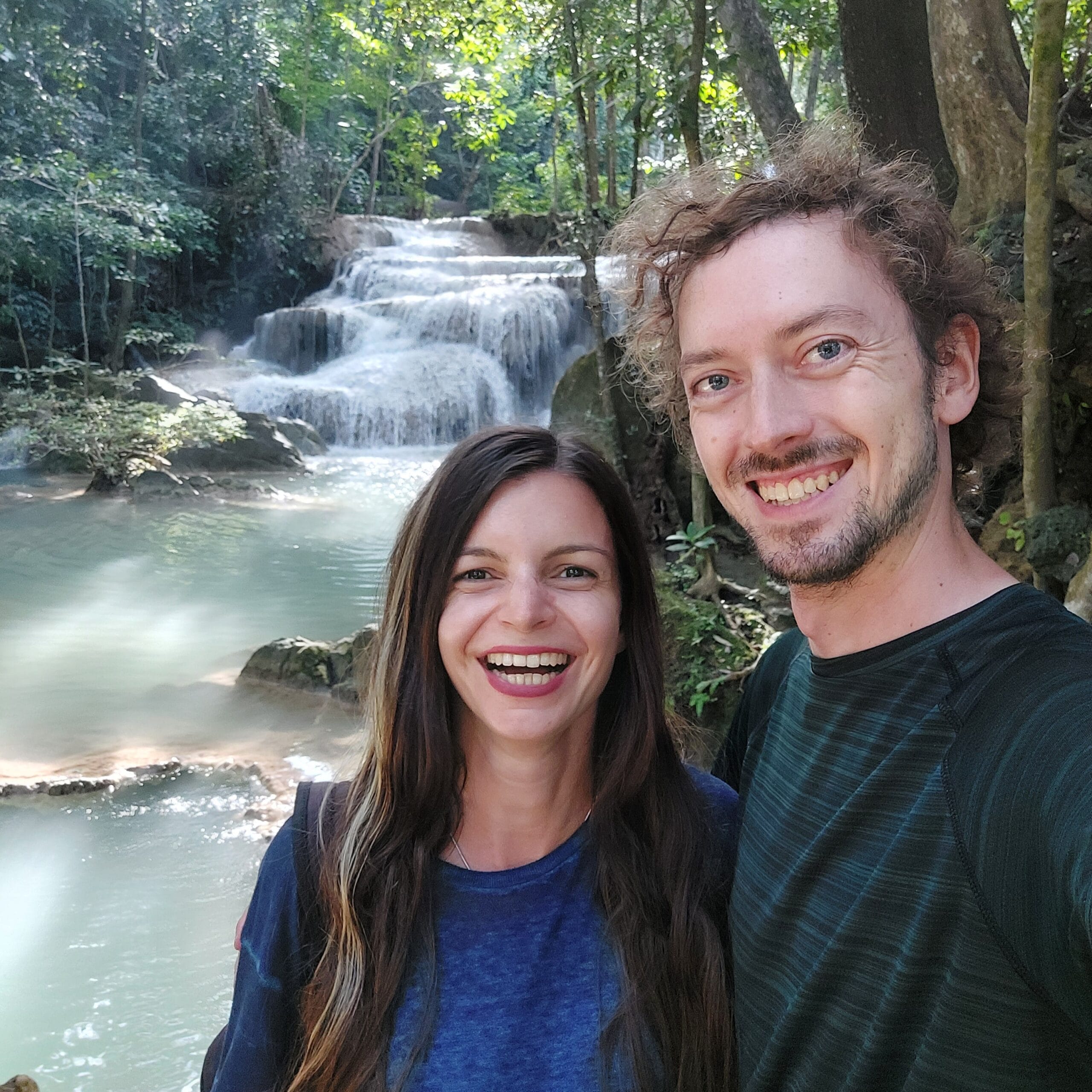
Hi!
We’re Mirka & Daniel — full-time travellers, professional overthinkers & bad luck magnets. We research EVERYTHING and then share all the weird travel tips with you here. Follow along to make your adventures easier! 🌴

